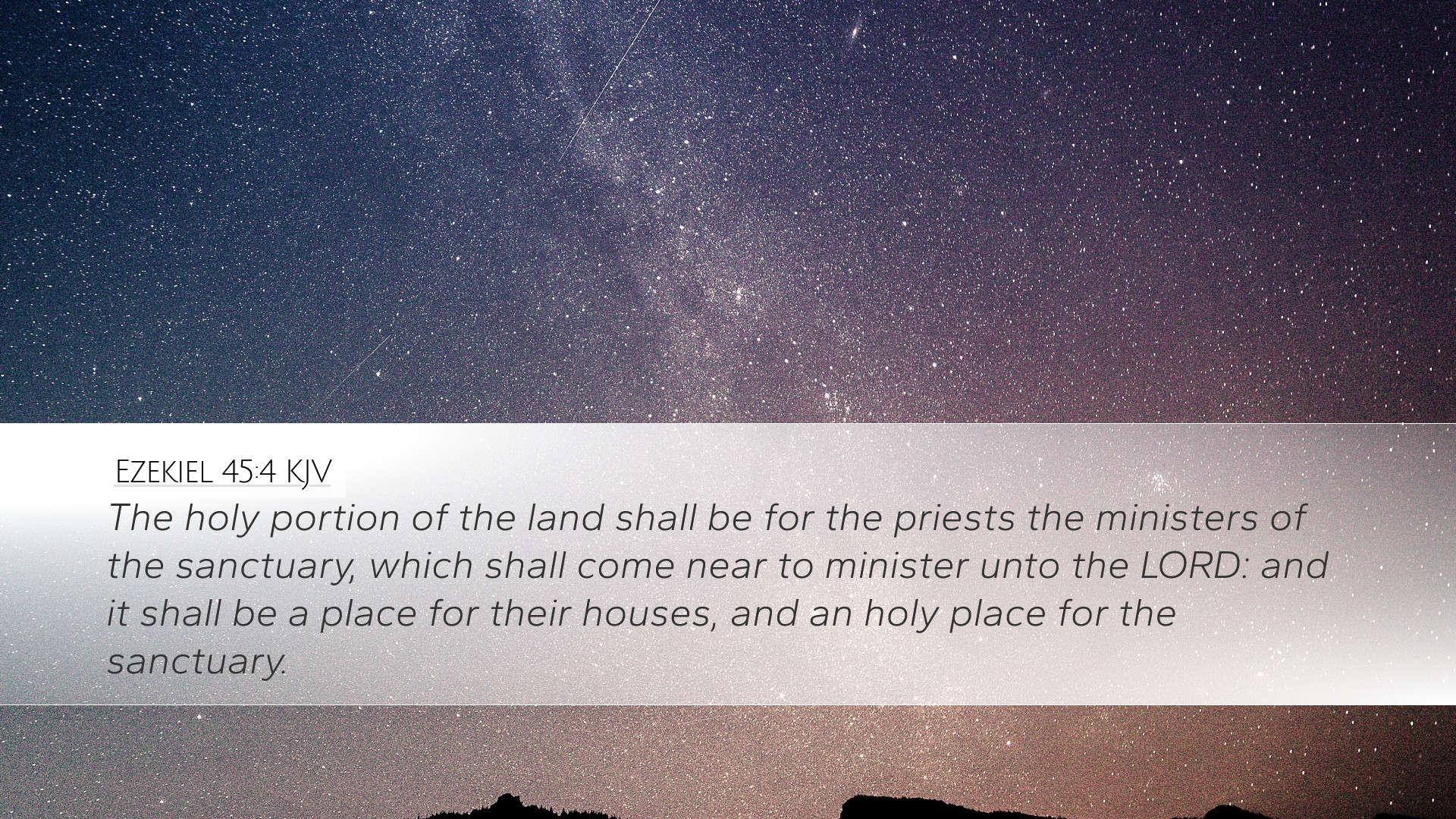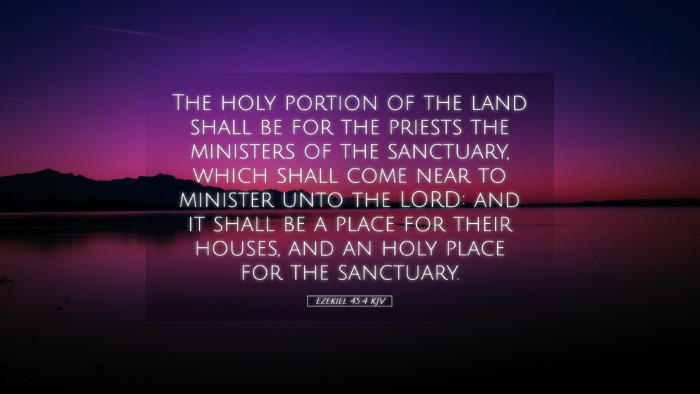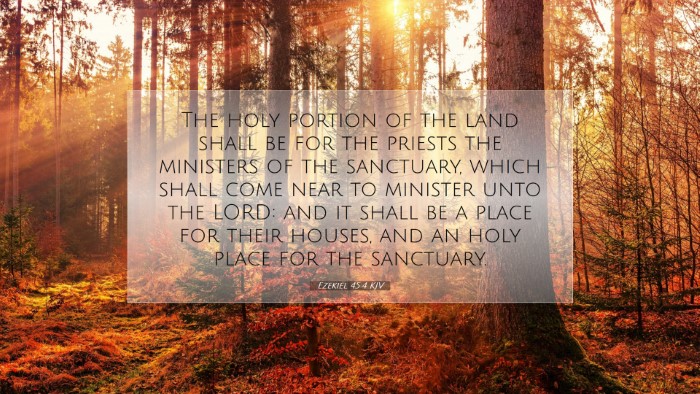Bible Commentary on Ezekiel 45:4
Text of the Verse
Ezekiel 45:4 (KJV): "The holy portion of the land shall be for the priests the ministers of the sanctuary, which shall come near to minister unto the LORD: it shall be a place for their houses, and a holy place for the sanctuary."
Introduction
The verse is set within a larger context, as Ezekiel is writing during a time of great upheaval and transition for the people of Israel. The detailed descriptions of the division of the land and the allocation of the sacred space reflect God's intention for His people to dwell in holiness and order, particularly involving their worship and service.
Exegesis and Analysis
1. The Holy Portion: Ezekiel describes a designated land for the priests, illustrating God's holy provision for those who serve Him. This portion serves as a continual reminder of the separation required between the sacred and the secular. In terms of application, this can speak to the importance of setting apart time and space for worship.
2. The Role of the Priests: The phrase "the ministers of the sanctuary" indicates the special role of the Levites and priests in Israel’s worship system. Matthew Henry emphasizes that those who serve in the sanctuary are not only caretakers of the rituals but are also responsible for maintaining a pure and holy worship environment. Their closeness to the Lord in service also implies their need for a dedicated space.
3. The Importance of Housing: The mention of houses emphasizes that serving God also involves community and belonging. According to Albert Barnes, providing homes for the priests illustrates God's acknowledgment of their needs. The communal aspect of worship must be nourished through personal and familial investment, reinforcing that spiritual leaders require stability to focus on their ministry.
4. Holiness and Accessibility: The "holy place for the sanctuary" refers to the space where God's presence dwells. Adam Clarke elucidates that this reflects a divine intention that worship should not be diluted or compromised. The space reserved for God’s sanctuary must be treated with utmost honor, which impacts congregational attitudes toward worship. The sanctuary should be a reflection of the holiness that God calls His people to embody.
Theological Implications
This verse not only illustrates specific instructions for the priestly class but also provides a broader theological framework relevant to contemporary faith communities.
-
Separation from Secular: Ezekiel’s vision reflects God’s demand for a distinct separation between sacred and secular spaces. Today, church leaders and laypeople alike can learn the importance of delineating holy time and spaces from everyday concerns.
-
Divine Provision: The allocation of land indicates God’s provision for those who serve Him. The assurance that physical needs are met enables spiritual leaders to concentrate on their duties.
-
Community Around Worship: By providing housing for priests, the text demonstrates that worship is not merely individualistic but communitarian. It encourages strong relationships and accountability among congregants.
-
Mortal Mediators: The priests function as intermediaries between God and the people, a role which continues in the New Testament through the priesthood of all believers (1 Peter 2:9). The necessity for dedicated spaces emphasizes the significant role of spiritual mediators in fostering an environment of worship and service.
Practical Applications
For pastors, students, and theologians, Ezekiel 45:4 encourages reflection in several practical areas of ministry.
-
Establishing Sacred Space: Pastors are called to create environments within the church that are conducive to worship. This includes not just physical structures but also the atmosphere of reverence and holiness.
-
Care for Leaders: Recognizing ministerial needs can enhance pastoral care and support. Ensuring that spiritual leaders are well-cared for parallels the provisions laid out in Ezekiel, fostering a strong ministerial presence within the community.
-
Encouraging Engagement: The communal aspect of worship can encourage church members to see their roles in supporting one another and the leaders in crafting a collective worship space that honors God.
-
Teach On Holiness: Aimed at fostering an understanding of how both individual and corporate practices can reflect God's holiness, sermons and teachings derived from this text can guide congregations toward deeper holiness in living and worship.
Conclusion
Ezekiel 45:4 not only provides specific instructions regarding the distribution of land among the priests but also serves as a lens through which contemporary readers can view their own roles in the sacred act of worship. The principles of holiness, community, and divine provision resonate beyond the context of the Old Testament, providing timeless truths applicable to spiritual leadership and community life today.


